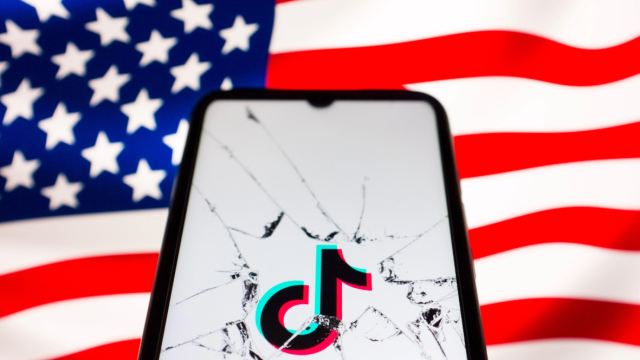Social Media Platform TikTok is once again under threats from the senate. Photo by The Hill via Getty Images.
The social media app TikTok, has faced either a partial or attempted ban in about 34 out of the 50 states of the United States of America. The platform is owned by Chinese company ByteDance, which sparked concern over users’ data privacy and the influence of the Chinese government. In 2020, the Trump administration had tried to ban the app, but was stopped by the court and then Biden. In 2023, government and state employees were banned from having the app on government devices. In April, the United States House of Representatives provided a provision in the “Protecting Americans from Foreign Advisory Controlled Applications” act, which would ban the app, unless their parent company sells the platform and in the same month the United States Senate House provided the bill and Joe Biden signed it.
In 2020, Trump has requested for the ban of the platform as he had viewed the app as a threat to national security and, as a result of this, ByteDance had agreed to sell the platform in an attempt to prevent a ban from the United States and other countries, which also had similar concerns. TikTok later filed a legal action against the Trump’s administration, contending that the order was encouraged by Trump’s attempt to boost reelection support through the protectionist trade policies against China. Microsoft did try to acquire the platform, but was rejected by the company, as the higher ups expressed concerns of the proposal nor being accepted by the Chinese Government.
In 2022, President Joe Biden signed the “No TikTok on Government Devices Act,” which prohibited the use and download of the platform on government devices. A few days after, the Biden Administration spoke to ByteDance to sell the platform or it would be banned. The law enforcement launched an investigation of the platform. In the same year, a Missouri senator proposed a bill to ban the platform throughout the country, but it was blocked by the Senate by a forced vote.
On Mar. 8, President Joe Biden said that he would sign into law a bill to ban the platform if the company does not sell the platform. It would ban the operations of the app within the country unless the parent company sells the platform as determined by the US president within 180 days of the passing of the bill. On Apr. 20, the United States House of Representatives amended the previous bill and increased the time allowed for sale to a minimum of 270 days. On Apr. 23, the bill passed through the House and Senate and president Biden signed it on Apr. 24. The ban could go into effect as early as January 2025, and an additional 90 days could be added to the deadline. If the ban does go into effect, the app would be removed from app stores, but users that have the app can continue to use the app. The problem is that the parent company, ByteDance, would not be able to send in updates or security patches, which would put the app at a high security risk.









